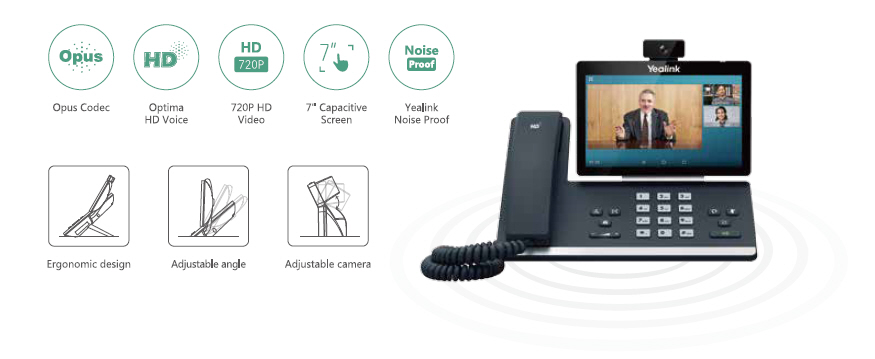In today's fast-paced business world, communication is key. A reliable and efficient Voice over Internet Protocol (VoIP) phone system can be a game changer for organizations of all sizes. But with so many options available, how do you choose the right type of VoIP system for your needs? This article delves into the debate between cloud vs on-premise VoIP systems, offering insights and guidance to help you make an informed decision.
Understanding VoIP Phone Systems
What is VoIP?
At its core, Voice over Internet Protocol (VoIP) allows users to make voice calls using the internet instead of traditional telephone lines. This technology not only enables voice communication but also supports video calls, instant messaging, and more.
How Do VoIP Phone Systems Work?
VoIP phone systems convert your voice into digital signals that are transmitted over the internet. These signals are then converted back into sound on the receiving end, allowing for seamless communication.
Benefits of Using a VoIP Phone System
Cost-Effective: VoIP systems often come at a lower cost compared to traditional phone services. Scalability: You can easily add or remove lines based on your business needs. Flexibility: Employees can use their phones from anywhere with an internet connection. http://beckettdyod925.fotosdefrases.com/voip-solutions-enhanced-mobility-compared-to-traditional-pbx Advanced Features: Many VoIP systems offer features like call forwarding, voicemail-to-email, and conference calling.Cloud vs On-Premise: Choosing the Right Type of VoIP System for You
When it comes to selecting a VoIP phone system, businesses generally face two main options: cloud-based solutions or on-premise installations. Each has its own set of advantages and challenges.
What is Cloud-Based VoIP?
Cloud-based VoIP systems operate through remote servers managed by service providers. Users connect over the internet, utilizing software applications rather than physical hardware.
Advantages of Cloud-Based VoIP Systems
Lower Initial Costs: Generally requires minimal upfront investment. Automatic Updates: Providers handle maintenance and upgrades without user intervention. Accessibility: Allows users to access their phone system from any device with an internet connection. Disaster Recovery: Data is stored off-site, reducing risks associated with local outages or disasters.Challenges of Cloud-Based VoIP Systems
Dependency on Internet Connectivity: Requires a stable internet connection for optimal performance. Ongoing Subscription Costs: Monthly fees can accumulate over time. Limited Control Over Infrastructure: Less flexibility in customization compared to on-premise solutions.What is On-Premise VoIP?
On-premise VoIP systems involve installing hardware and software within your organization’s physical location, giving you complete control over your communications infrastructure.
Advantages of On-Premise VoIP Systems
Greater Control: Complete ownership means you can customize settings to meet specific business needs. Security: Sensitive data stays within your premises, potentially reducing security concerns. No Ongoing Subscription Fees: After initial setup costs, businesses may save money in the long run.Challenges of On-Premise VoIP Systems
Higher Upfront Costs: Installation and maintenance can be expensive initially. Maintenance Responsibilities: IT staff must manage upkeep and troubleshooting. Limited Scalability: Adding new lines may require additional hardware investments.Evaluating Your Business Needs: Cloud vs On-Premise
When deciding between a cloud-based or on-premise solution for your business's VoIP phone system, consider these factors:
Budget Considerations
- What is your budget for initial setup versus ongoing costs? Are you capable of handling maintenance costs associated with an on-premise solution?
Scalability Requirements
- How quickly do you anticipate needing additional lines? Do you plan to expand your team in the near future?
Technical Expertise Available
- Does your organization have IT personnel equipped to manage an on-premise solution? Would it be more beneficial to rely on a provider’s expertise with cloud solutions?
Business Operations Location Flexibility
- Is remote work common among your employees? Do you need a system that allows operations across multiple locations?
The Future of Communication: Trends in VoIP Technology
With rapid advancements in technology, it's crucial to stay abreast of current trends influencing both cloud and on-premise systems:
1. Artificial Intelligence Integration
AI technologies are increasingly being integrated into both types of systems, providing features like intelligent call routing and automated customer service responses.
2. Enhanced Security Measures
As cyber threats evolve, both cloud providers and businesses operating their own servers are investing heavily in security measures such as encryption protocols and multi-factor authentication.
3. Unified Communications Platforms
Many businesses are opting for unified communications solutions that bring together voice calls, video conferencing, messaging apps, and collaboration tools into one platform—regardless if they opt for cloud or on-premises setups.
FAQs About Choosing Between Cloud and On-Premise VoIP Systems
Q1: What is the primary difference between cloud-based and on-premise VoIP systems?
A1: The primary difference lies in where the infrastructure is hosted; cloud-based solutions use off-site servers managed by providers while on-premise solutions require local hardware installed within your facility.
Q2: Which option is more cost-effective?
A2: Generally speaking, cloud solutions offer lower initial costs but may result in higher subscription fees over time compared to one-time investments in on-premises setups.
Q3: Can I switch from one type of system to another later?
A3: Yes! Many businesses start with one type due to budget constraints or operational needs before transitioning as those factors evolve over time.
Q4: What should I consider first when evaluating my options?

Q5: How important is internet reliability when choosing a cloud-based solution?
A5: Extremely important! A stable internet connection is critical for maintaining quality voice calls without interruptions or latency issues when using cloud services.
Q6: Are there any hidden costs associated with either option?
A6: Yes! With cloud services look out for potential charges related to exceeding usage limits; whereas with on-premises systems factor in maintenance expenses down the line!
Conclusion
Choosing between a cloud-based or on-premise VoIP phone system ultimately boils down to understanding your unique business needs against each option's advantages and disadvantages thoroughly examined throughout this guide—no stone left unturned!
Whether you're leaning toward flexibility offered by a cloud service or seeking control through an on-premises installation—remember that mastering communication technology isn't just about making calls—it's about building connections!
So take stock; weigh those pros & cons carefully before making that leap into either realm because good communication makes great businesses thrive!